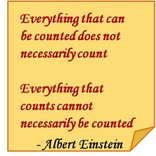In the past couple of months I have encountered facebook –quite literally - wherever I have turned my face! I have seen it land up in my inbox as invites from friends, pop up in conversations with colleagues, featured on blog posts and finally yesterday I was sent an article on - what sites like face book and myspace mean for research?
Grant McCracken has a good post on this – How social networks work . He refers to these as ‘phatic conversations’
My conjecture is – that’s what keeps the regularity of such conversations going and these networks thriving. Dropping in a one-liner on someone’s facebook wall is far less taxing than sitting down to write an email which would warrant some thought, structure and purpose.
Online research and the use of discussion boards brought some change to this format. That was all about recruiting a panel and having short, non immersive, regular conversations with a set of people. Those were still purposeful conversations
What then is the difference between using a social networking site for research as opposed to using a discussion forum? The way I see it is that participants who are part of a discussion board have been brought there / have come on their own volition - for a specific purpose vis-à-vis people on social networking sites who are already hanging around there.
The difference is also that people at social networking sites are hanging around there and primarily engaging in Phatic conversations – the everyday emotional fillers. The kind of conversations marketers / researchers are likely to have on such platforms would not be quite like that. Even if they are limited to the small non immersive format – they are still going to be purposeful and rational – and therefore not likely to fulfill the need that people are there for.
The closest example I could think of was lunch time conversations that I would have with my female colleagues about inane things, interjected by our boss who’d spoil the party by constantly talking something work related. Even if it was something as small as just throwing up a question – it would be met out with disgusting looks – since that was not the right time and place to talk about such affairs.
Your thoughts?
